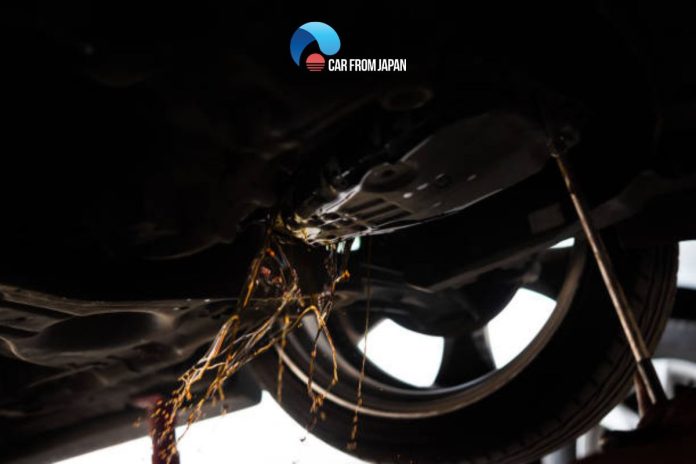Everyone knows you need to change your engine oil regularly, but what about your transmission fluid? It’s one of the most important—and most often forgotten—maintenance jobs on your car. While you don’t need to change it nearly as often as engine oil, skipping it can have much more expensive consequences. So, how often to change transmission fluid? Let’s talk about the right schedule for your vehicle.
Contents
- How Often To Change Transmission Fluid?
- Things To Watch Out
- FAQs
- What are the signs that my transmission fluid needs changing?
- Is it necessary to flush the transmission fluid, or can I just do a fluid change?
- What type of transmission fluid should I use?
- Can changing transmission fluid fix existing transmission problems?
- Is it essential to change the transmission filter along with the fluid?
- Can I change the transmission fluid myself if I have a continuously variable transmission (CVT)?
- Can I use synthetic transmission fluid, and does it offer any advantages?
- Conclusion
How Often To Change Transmission Fluid?
To make an informed decision on how often should transmission fluid be changed, depending on your own vehicle’s needs, you can follow a few simple guidelines.
However, your first point of reference should always be the maintenance section of your owner’s manual. If the manual does not contain any recommendations, then you can determine based on the following factors.
1. Transmission Type: Automated or Manual?
Different transmission systems use different types of fluids. Fluid degradation over time is more common with automatic transmissions due to high heat generation from hydraulic pressure.
Contamination of the transmission fluid is a bigger problem in manual systems. It happens because they have more moving parts, causing more wear from friction.
What can you do to make the transmission system last longer? Consider replacing the fluid at about 75,000 to 100,000 miles intervals for automatic transmissions.
It will be from 30,000 to 60,000 miles in case of manual systems. A more frequent fluid change is rather helpful and does not harm, in case you are wondering.

2. Driving Habits
For normal driving under regular conditions, you don’t need to change transmission fluid often. But you will need frequent transmission fluid changes if your vehicle is used in ways other than ordinary conditions, such as:
- Towing or heavy carriage,
- Driving at low speeds for extended periods
- Driving frequently on uneven terrain
Depending on the extent of use, you might have to change it frequently. The rule is to change at every 15,000 miles for manual transmissions and 30,000 miles for automatic transmissions.
Keep the fluid under regular check. Opt for a change if the color is anything other than the characteristic bright red.
Things To Watch Out
Various models of the same car maker may have different servicing requirements, for instance, Honda transmission fluid change is not the same for a Vezel and an Accord, or even for Honda Accord 2006 and 2018.
It is not a good idea to ignore the manufacturer’s recommendations for how often to change transmission fluid.
A low fluid level is a shortcut to transmission failure or quick damage. Pay a visit to a service shop and test the fluid level if you doubt a leakage or find gear shifting strenuous.
Also, get your transmission system checked immediately if you feel the gear slipping, notice any unusual sound or vibration from the transmission, or feel any inexplicable difference in your vehicle while handling your gearbox or transmission.
If you have never changed your transmission fluid yet, and your odometer reads above 100,000 miles, check out this article on black transmission fluid before you decide whether it’s a good idea to change the fluid at all.

FAQs
What are the signs that my transmission fluid needs changing?
Signs include rough shifting, slipping gears, transmission overheating, and a burnt smell. If you notice any of these symptoms, it’s time to check and possibly change the transmission fluid.
Is it necessary to flush the transmission fluid, or can I just do a fluid change?
A fluid change, which replaces a portion of the fluid, is often sufficient for routine maintenance. Transmission flushes are recommended in specific situations or for high-mileage vehicles.
What type of transmission fluid should I use?
The type of transmission fluid required depends on your vehicle’s make and model. Always refer to the owner’s manual or consult with a professional to ensure you use the correct transmission fluid.
Can changing transmission fluid fix existing transmission problems?
Changing transmission fluid can help resolve some issues, such as slipping gears due to dirty or worn-out fluid. However, it may not resolve more severe transmission problems.
Is it essential to change the transmission filter along with the fluid?
It’s recommended to change the transmission filter when changing the fluid. The filter helps remove contaminants and debris from the fluid, contributing to smoother operation.
Can I change the transmission fluid myself if I have a continuously variable transmission (CVT)?
Changing CVT transmission fluid can be more complex and may require specialized equipment. It’s often best to have CVT fluid changes performed by professionals.
Can I use synthetic transmission fluid, and does it offer any advantages?
Synthetic transmission fluid can offer improved performance and durability, but it’s essential to check your vehicle’s specifications and consult your owner’s manual before switching to synthetic fluid.
Check out this video from ChrisFix to learn more about automatic transmission fluid!
Conclusion
In conclusion, maintaining the health of your vehicle’s transmission by changing the transmission fluid at regular intervals is a fundamental aspect of responsible car ownership.
This routine maintenance not only ensures the smooth operation of your vehicle but also plays a vital role in extending the lifespan of the transmission itself.
By addressing potential issues early, such as poor shifting, overheating, or unusual noises, you can enjoy the benefits of improved performance, enhanced fuel efficiency, and increased reliability!



